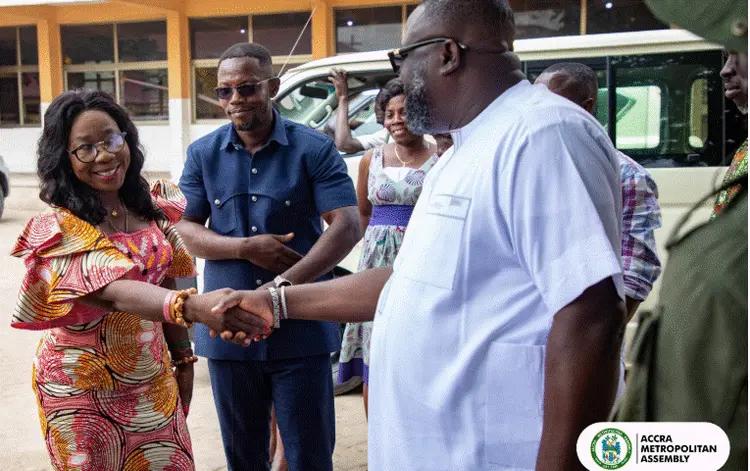Accra Pushes Cultural Agenda Through Education
The Mayor of Accra, Michael Kpakpo Allotey, has issued a directive to the Metro Education Unit of the Accra Metropolitan Assembly (AMA) to ensure that the Ga word for welcome – “Oobakɛ” – is boldly displayed at the entrances of all basic schools in the metropolis.
The directive, announced on Thursday during a tour of selected schools, is part of efforts to promote the Ga language and safeguard the cultural heritage of the indigenous people of Accra. The Mayor stressed that such a measure would not only greet students daily but also act as an educational reminder of identity and pride.
Why the Ga Language Initiative Matters
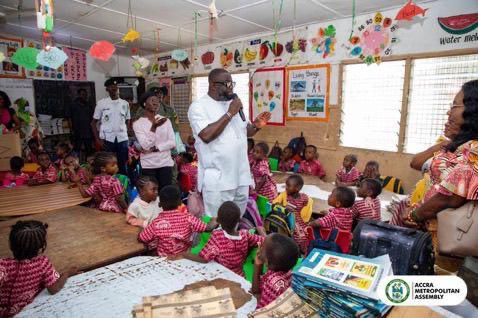
Speaking during his school visits, Mayor Allotey explained that the inscriptions would expose children to the Ga language from an early age, reinforcing a sense of belonging.
“Our heritage must be passed on to the younger generation, and language is at the core of that heritage,” he noted.
The importance of this directive extends beyond symbolic value. Linguists and cultural advocates have warned that several Ghanaian dialects, including Ga, face gradual extinction due to the dominance of English and other foreign languages in urban settings. The introduction of “Oobakɛ” in schools represents a step towards reversing this decline.
A 2023 report by the Bureau of Ghana Languages indicated that only about 40 percent of children in Accra could hold basic conversations in Ga, compared to over 70 percent two decades ago. This decline reflects broader concerns across Ghana, where urbanization and inter-ethnic diversity often dilute the use of indigenous dialects.
Mayor’s Visits to Schools in Accra
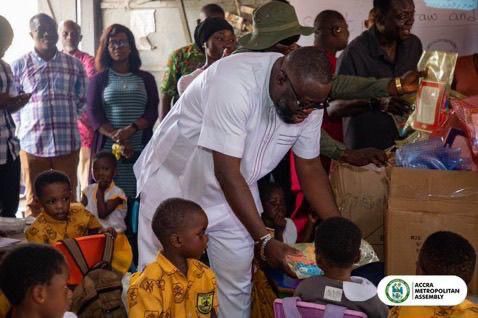
The Mayor announced the initiative while touring several schools, including the Martyrs of Uganda R/C Basic School in Mamprobi, the Ministry of Health (MOH) Basic School, the 28th February Road Primary & Kindergarten, and the Peter Odartey Lamptey Memorial JHS.
During the visits, he distributed stationery to pupils and welcomed new entrants into the academic year. Mayor Allotey also personally engaged with the children, teaching them how to greet and welcome others in the Ga language.
At the Martyrs of Uganda R/C Basic School, he interacted with the Ga language teacher, urging her to prioritize the teaching of the dialect.
“As Mayor, I will ensure that the Ga language is taught in all schools across the metropolis. It is part of who we are,” he emphasized.
Strengthening the Teaching of Ga Language
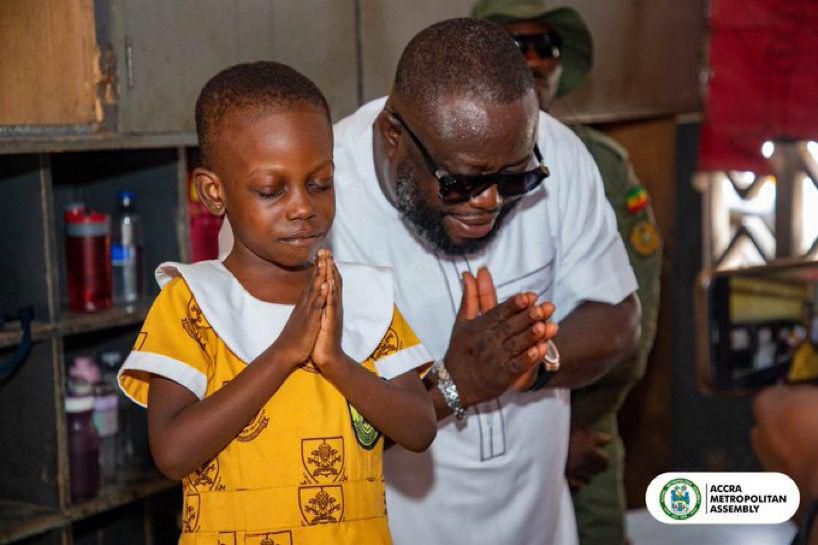
The directive forms part of a broader plan by the AMA to collaborate with the Ghana Education Service (GES) and other stakeholders to integrate Ga lessons more effectively into the school curriculum. According to the Mayor, language preservation and cultural promotion remain central to the Assembly’s educational agenda.
In many parts of Ghana, indigenous languages are supposed to be taught in early education. However, enforcement has often been inconsistent, with some schools prioritizing English-only instruction. In Accra, this has led to concerns that younger generations are losing fluency in the Ga language, despite living in the historical homeland of the Ga people.
Educational experts argue that children who learn in their mother tongue during early education perform better academically. This makes the AMA’s initiative not only a cultural decision but also an educational strategy that could boost learning outcomes.
Cultural Identity and Community Response
Local parents and cultural advocates have praised the initiative as a practical way of reviving Ga traditions in a rapidly modernizing city.
“Children see and repeat what they encounter every day. Writing ‘Oobakɛ’ at school gates will ensure the Ga language stays in their memory,” said a parent in Mamprobi.
Community leaders also believe that such initiatives will help younger generations take pride in their heritage, which is essential for building inclusive communities in multicultural Accra. Some suggested that the AMA expand the program to include Ga proverbs, short phrases, and cultural symbols in schools.
Broader Implications for Ghana
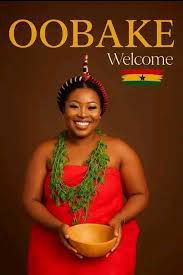
The directive highlights a national challenge: how to balance modernization with the preservation of indigenous identity. Similar efforts have been made in other parts of Ghana, including Ashanti Region, where Twi has been introduced as a compulsory subject in some schools, and in the Northern Region, where Dagbani literacy campaigns have been piloted.
If consistently implemented, Accra’s Ga language preservation initiative could serve as a model for other urban areas grappling with cultural erosion. Experts caution, however, that signage alone is insufficient. Teacher training, curriculum support, and parental involvement will be essential to sustaining the impact.
Closing Insight
While the inscription of “Oobakɛ” at school entrances may appear symbolic, it represents a crucial turning point in efforts to preserve indigenous culture in Ghana’s capital. By reinforcing identity through daily exposure, the AMA’s initiative has the potential to strengthen cultural roots while complementing academic development.
For Accra, the message is clear: the city’s heritage must not be forgotten, even as it grows into a modern metropolis.
Read also: Spain Dethrone Argentina to Top FIFA Rankings as Morocco Lead Africa’s Charge

